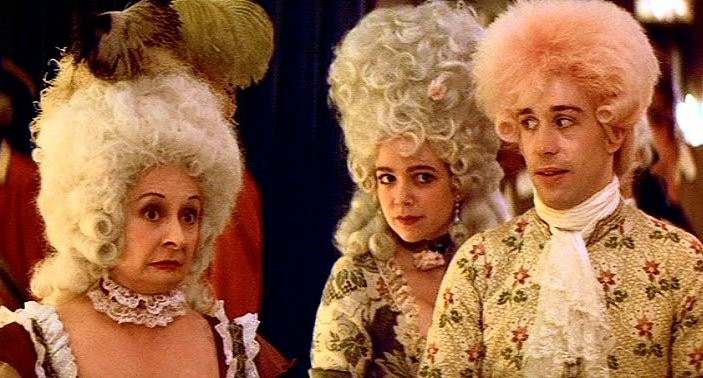🎬 Amadeus (1984)

🎬 Amadeus (1984): A Symphony of Genius and Jealousy
Directed by Milos Forman and based on Peter Shaffer’s acclaimed play, Amadeus (1984) is a cinematic masterpiece that intertwines music, ambition, and the darker complexities of human emotion. This historical drama takes audiences into the lavish courts of 18th-century Vienna, chronicling the tumultuous relationship between two extraordinary composers: the irreverent genius Wolfgang Amadeus Mozart and his envious rival Antonio Salieri.

Told through the eyes of an aging Salieri (played brilliantly by F. Murray Abraham, who won an Academy Award for his performance), the story unfolds as a confession. Now residing in an asylum, Salieri reflects on his deep admiration for Mozart’s divine talent and the profound jealousy it sparked within him. Salieri, once a celebrated court composer, grapples with his belief that God chose to bestow musical genius upon the vulgar and immature Mozart (Tom Hulce, in a charismatic and energetic portrayal) rather than himself, who dedicated his life to piety and service.
As Mozart dazzles Vienna’s elite with his groundbreaking compositions, his personal life spirals into chaos. His flamboyant personality, strained finances, and tempestuous relationship with his wife, Constanze, add layers of complexity to his character. Salieri, consumed by envy, covertly plots to sabotage Mozart’s career while outwardly supporting him, setting the stage for a tragic downfall.

The film’s brilliance lies in its ability to juxtapose the divine beauty of Mozart’s music with the flawed humanity of its characters. Every note, from the soaring operas to the intricate chamber pieces, is meticulously chosen to reflect the narrative’s emotional depth. The soundtrack, featuring Mozart’s greatest works, is as much a character in the film as the actors themselves, immersing viewers in a rich auditory experience.
Visually, Amadeus is a feast for the senses. The opulent costumes, lavish sets, and exquisite lighting transport audiences to the grandeur of 18th-century Europe. The film’s attention to detail, from the bustling streets of Vienna to the hallowed halls of the opera house, creates a vivid and immersive world.
At its core, Amadeus is a study of human frailty, ambition, and the divine mystery of artistic genius. It explores themes of envy, legacy, and the bittersweet pursuit of greatness. The dynamic between Hulce’s spirited Mozart and Abraham’s tormented Salieri is both captivating and heartbreaking, driving the narrative with emotional intensity.

Winner of eight Academy Awards, including Best Picture, Best Director, and Best Actor, Amadeus is a timeless exploration of creativity and rivalry. It remains a towering achievement in cinema, resonating with audiences as a profound meditation on art, mortality, and the eternal question of what it means to leave a mark on the world. 🎼✨











